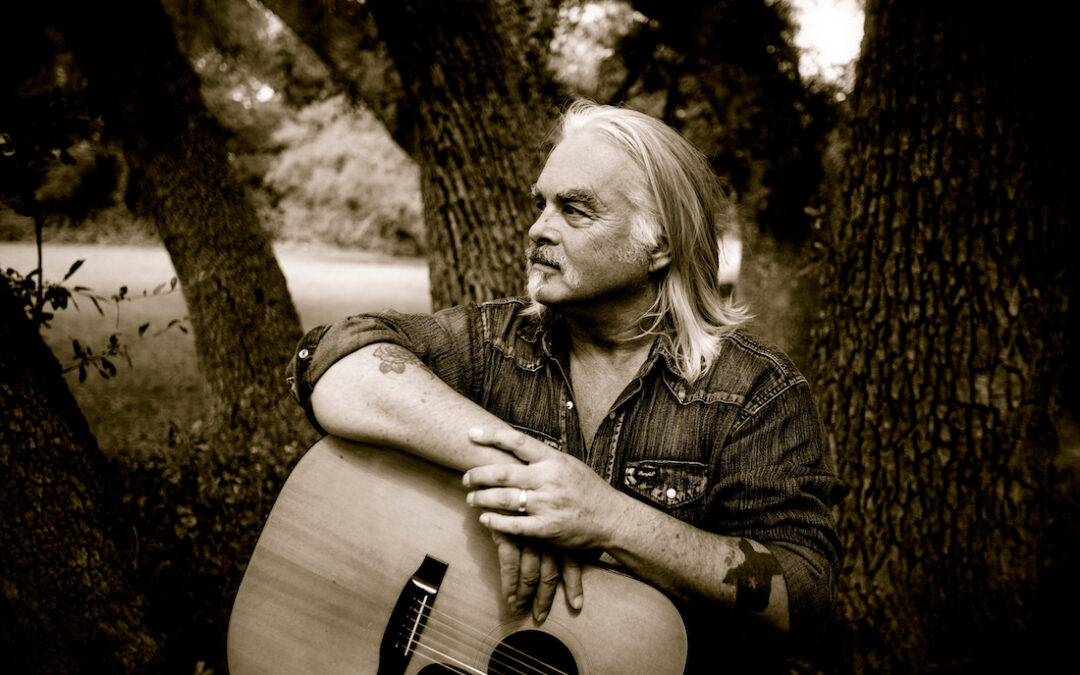Multitalented Grand Ole Opry inductee Hal Ketchum, who was a singer, songwriter, painter, master carpenter and actor, died on Nov. 23, 2020, at his home in Texas.
“With great sadness and grief we announce that Hal passed away peacefully last night at home due to complications of Dementia,” Ketchum’s wife, Andrea, posted on Facebook. “May his music live on forever in your hearts and bring you peace.”
Born in Greenwich, New York, on April 9, 1953, to a family that made music a part of their daily activities, Ketchum began performing in clubs as a drummer with a rhythm and blues trio as a teenager.
“It was a great lesson in sociology because the bars would move the pool table over in the corner and put a three-quarter-inch piece of plywood on top, and that would be my drum riser,” Ketchum said once in an interview. “At 15 years old I’d get to sit up in the corner of these joints and just watch the evening progress. Friday night everybody would get paid from one of the local pulp mills, and they would wander in and be very generous during the first set. Then by halfway through the second set, they’re dancing with one of the girls. And by the third set they’re fighting. I learned never to stop playing during a fight. That was an important part of my education.”
Ketchum pointed out that his observations were “tattooed onto my soul” and not dissimilar to scenes depicted in his very first hit, “Small Town Saturday Night,” which states that the locals “howl at the moon, shoot out the light.
Yeah, it’s a small town Saturday night.”
Ketchum eventually traded one of his two drum kits for a five-string banjo and then traded another banjo for a Martin acoustic guitar, forming a duo with his singing and guitar-playing brother, Franklin.
After a 1981 move to Austin, Texas, Ketchum found himself a regular at a small dance hall, Gruene Hall, where he became inspired to try singing and songwriting. By 1986 he had recorded 11 of his original songs, releasing them on a self-funded album, “Threadbare Alibis,” in 1988.
“Threadbare Alibis” spawned a record deal with Curb Records and precipitated a move to Nashville. His Recording Industry Association of America certified Gold album, “Past the Point of Rescue,” released in 1991, produced four Top 20 singles: No. 2 charting “Small Town Saturday Night” and title track, “Past the Point of Rescue;” “Five O’Clock World”; and his self-penned “I Know Where Love Lives.”
Ketchum released the album “Sure Love” in 1992. The album’s title track charted at No. 3 on the Hot Country Songs chart, followed by “Hearts Are Gonna Roll” also at No. 2 and “Mama Knows the Highway” at No. 8.
Between 1991 and 2006, Ketchum had 17 entries on the Billboard Hot Country Songs charts. In total, he had 15 top 10 singles and sold five million albums. Additionally, Ketchum appeared in the 1988 film “Heartbreak Hotel” and made a cameo appearance as a bank robber in the 1994 film “Maverick.”
He became paralyzed for a period of time in 1998 from Acute Transverse Myelitis, an ailment of the spinal column that left Ketchum without the use of the left side of his body, forcing him to relearn basic tasks, including how to walk and play the guitar.
According to halketchum.com, in 2008, Ketchum released an album called “Father Time,” which was unusual in that it was recorded with no over-dubs, just head on recording direct to two tracks.
“He captured that authenticity of old style recording and revisited one of the first songs that he ever wrote, ‘The Preacher and Me,’” the website states, adding. “Then he took a break.”
His split with Curb Records was followed by a split with his third wife, Gina, with whom he adopted three daughters, and culminated with the death of his long time bass player, Keith Carper, who passed away at 50 years old in 2009.
After he relocated from Nashville back to Texas in 2010, he frequently played in regional theaters, clubs and other performance venues.
“I’d reached a point during my time in Nashville where I’d fallen into that mill worker mentality, where you’re only as good as your last record,” Ketchum said when he released his album “I’m the Troubadour” in 2014. “If the phone didn’t ring for two days, I was crushed. I’d worked myself into this odd place, where you have to be validated by your previous accomplishments. To be liberated from that kind of pressure is really fantastic. The pressure’s off now. I’m just old Hal now… and I still have a lot to say.”
He also began to engage in cherished hobbies. He was a painter whose work was displayed in a sold-out art show in Santa Fe, New Mexico’s Pena Gallery in 2002 and throughout his home. He was a master carpenter and furniture maker. Fly fishing in Montana and reading brought him peace. He continued to perform and to write songs, but by spring 2019 a debilitating condition would prevent him from enjoying the things he loved.
Ketchum developed early-onset senile dementia, including Alzheimer’s disease and gave his final performance in October 2018 at Gruene Hall, where he had made frequent appearances since 1985 and had volunteered as a carpenter on its restoration. A benefit concert, “Raised by Wolves, Bound for Glory: A Texas Tribute to Hal Ketchum,” during which many of his musician friends performed was held there in early 2020.
“He’s played hundreds of benefits, supporting causes and those in need,” the fundraising campaign message stated. “Any help that you can give Hal and his family is graciously appreciated.”
His wife, Andrea, continued to communicate and interact with Ketchum’s followers throughout his illness, often posting updates on his condition, photos and videos and expressing gratitude for those who showed kindness during trying times.
When observing Andrea’s dedication, the refrain from his No. 2 hit, which Ketchum co-wrote with Gary Burr, comes to mind.
“I would count the steps from here to heaven, every heartache I was given, tip my hat and walk through fire to find sure love,” he wrote. “I would chase old ghosts and watch them scatter, drop old dreams and watch them shatter, lose myself and all I own to find sure love.”
This copyrighted story by Claudia Johnson was originally published in Country Reunion Magazine and Country Reunion News.

